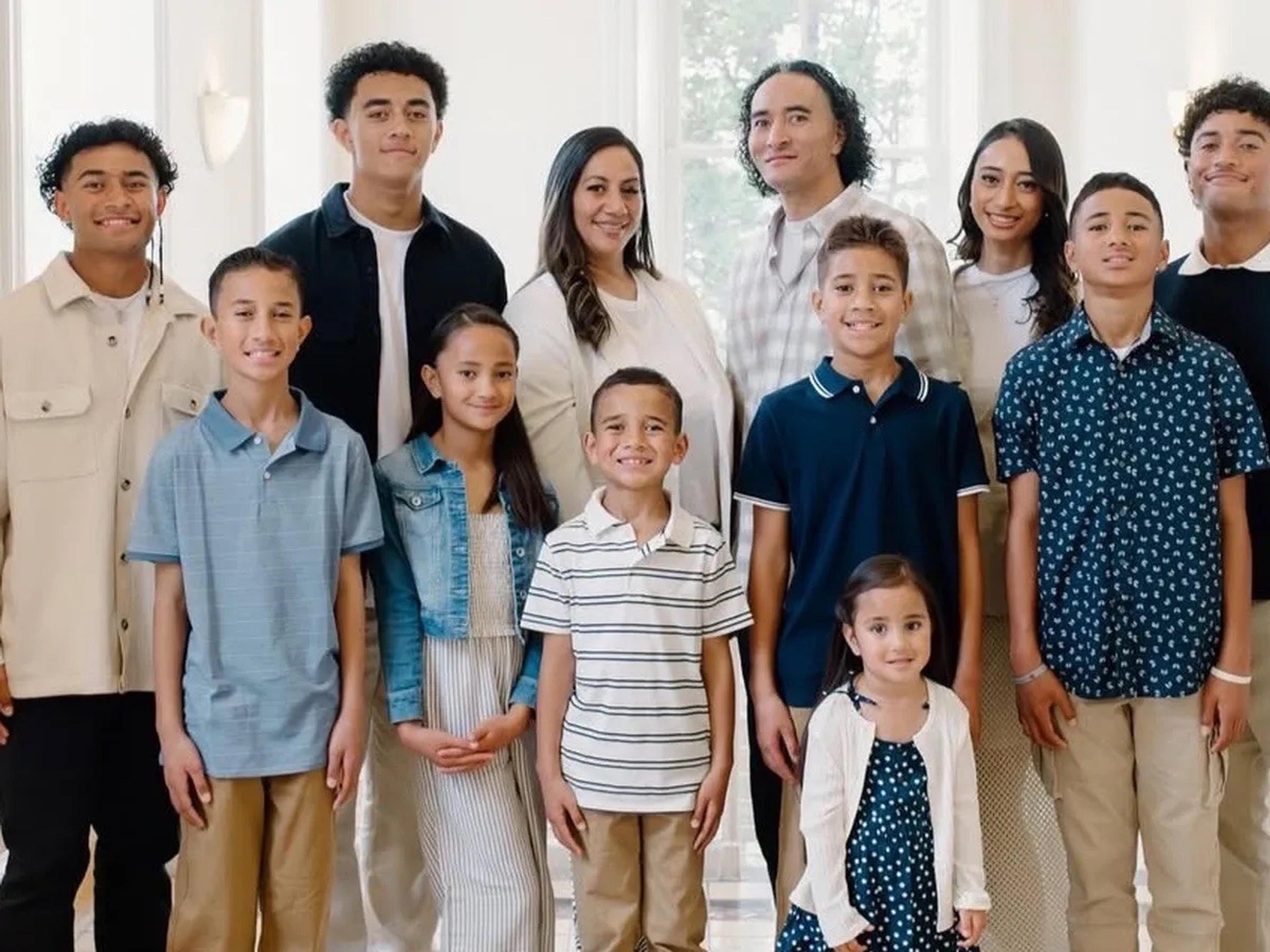

Sāmoa's leader, Laaulialemalietoa Leuatea Polataivao Schmidt, has rejected reports over his decision to "ban" the country's daily newspaper.
Photo/Junior S Ami
'Dangerous precedent': Sāmoa leaders, media warn of threats to press freedom, democracy
They have condemned Prime Minister Laaulialemalietoa’s ban on the Sāmoa Observer.



Father of 12 killed in US church shooting as police hunt for gunmen

Float First: A message for Pacific families during the holidays




Father of 12 killed in US church shooting as police hunt for gunmen

Float First: A message for Pacific families during the holidays

Former Prime Minister Fiamē Naomi Mata’afa has delivered the strongest warning yet, saying the Prime Minister’s ban on the Sāmoa Observer “strikes at the heart of media freedom” and mirrors actions seen in authoritarian countries.
Fiamē’s comments have added new pressure on the government of Laaulialemalietoa Leuatea Polataivao Schmidt, as Pacific media groups, political leaders, and local journalists unite in calling for the ban to be lifted immediately.
In an online statement on Wednesday, Fiamē cautioned that democracy “weakens not through one dramatic event, but through a series of actions that slowly reduce transparency and silence independent voices.”
Media organisations across the region have also spoken out, saying the ban sets a dangerous precedent for Sāmoa and the Pacific.
The Journalists Association of (Western) Sāmoa (JAWS) says the Prime Minister ignored the legal process for handling complaints and warns that punishing a newspaper for its reporting threatens every journalist’s safety and independence.
Regional media groups like the Pacific Islands News Association (PINA) and the Sāmoa Alliance of Media Practitioners for Development (SAMPOD) have echoed this, urging the government to reverse the ban and resolve any disputes through the Media Council.

Former PM Fiamē says media bans are for authoritarian regimes. Photo/Anetone Sagaga
Pressure is now growing inside Sāmoa as well. Opposition leader Tuilaepa Sailele Malielegaoi says the ban makes the country “look bad” internationally and suggests the government has something to hide.
Tuilaepa and other critics say leaders should welcome tough questions, not shut them out, and warn that the longer the ban remains in place, the more damage it will do to Sāmoa’s reputation and democratic values.
Fiamē is concerned about the government’s wider approach to public communication, including the lack of clarity around Prime Minister Laaulialemalietoa’s extended absence overseas. “Transparency is an obligation, not a choice.”

A Sāmoa Observer cartoon published in June. Photo/Sāmoa Observer/Facebook
She addressed the “troubling rise in online hostility” directed at the Sāmoa Observer, including comments from the owner of rival outlet, Talamua Media.
“Inciting hostility towards the press is unacceptable and should be condemned by all responsible leaders,” the former prime minister says.
The restriction stops the country’s only newspaper from attending press briefings and prevents Cabinet Ministers from responding to its information requests. Laaulialemalietoa first communicated the ban verbally in his office, later following up with a written statement describing it as a “temporary” measure.
Laaulialemalietoa accused the Observer of repeated inaccuracies, irresponsible reporting, and violations of privacy. He specifically cited an incident last weekend where reporters were “trespassing” and “invading” his personal space at his home.
On Thursday, the Prime Minister rejected claims he had “banned” the Samoa Observer, insisting the action amounts to a temporary suspension rather than a permanent prohibition. In a statement released to the media, he maintained that press freedom “is not compromised”, arguing the move is necessary to ensure the newspaper adheres to “accurate, factual and impartial” reporting standards.
Laaulialemalietoa, who has spent the past two months in New Zealand for medical treatment and recovery, emphasised the need for fa’aaloalo (respect) and ethical journalism.

The opening of JAWS offices last month, attended by Deputy PM Mulipola Anarosa Molioo-Ale. Photo/JAWS/Facebook
Media and political leaders have condemned the prime minister’s decision: On Wednesday, JAWS released a statement highlighting that the country’s Constitution protects media freedom. The association states that any concerns around reporting should be addressed through legal channels.
JAWS reminded its members of key sections of the Code of Practice, which include the obligation to publish corrections for errors and to respect privacy unless there is a strong public-interest reason. JAWS is also concerned that such a ban could normalise political interference:
PINA, the region’s largest media organisation, called the ban a “serious threat to media freedom, public access to information, and democratic accountability.” PINA urged that disagreements should be resolved through the Media Council rather than through punitive bans, which risk setting troubling precedents and silencing essential voices in governance.
SAMPOD echoed these concerns, calling the ban “a serious violation of press freedom” and warning that it undermines a key aspect of democracy. “When a government restricts access to a national newspaper because it is dissatisfied with coverage, it directly weakens the safeguards that protect the public,” the group states.
SAMPOD says Article 19 of the Universal Declaration of Human Rights affirms the public’s right to seek and receive information. It urges the PM to reverse his decision and work with the press to create fair and transparent protocols for media access.
Tuilaepa called the ban “shameful,” saying that it makes Sāmoa “look bad” on the world stage. The former prime minister, who had contentious interactions with journalists during his long tenure in office, says that while press scrutiny can be uncomfortable, it is important for good governance.
“Refusing to speak to the media is what happens in countries with bad leaders,” he told local media. “It makes it seem like there is something to hide.” He described press conferences as a “game” that encourages leaders to improve, saying, “Hard questions should be welcomed rather than feared”.